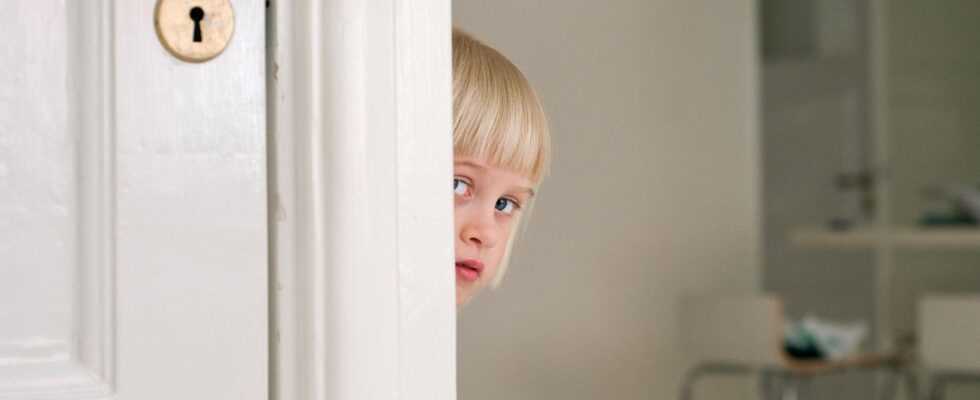Parents knowledge to go
Little children can’t lie yet
© Johan Willner / Getty Images
Up until the 1960s, upbringing was characterized by rigor and rigor and children were seen, especially in the most popular parenting guide of the time, as calculating, little devils who should not be allowed to get away with anything. Fortunately, today we know that this is by no means the case, because small children are not yet able to consciously lie.
Children are masters at pushing us to our limits. And sometimes you ask yourself as a parent whether there is a clever plan behind their actions and whether this enchanting child is up to evil in order to get his way. Dear fellow parents, we can reassure you: Your children are neither bad nor notorious liars – at least not when they are under six. Because up to this age children cannot consciously lie at all.
Lies don’t have short legs
Children’s brains work very differently from that of us adults. How exactly does Pia Kabitzsch explain on her YouTube channel psychologeek short, concise and understandable. For example, why babies cry when mom and dad just leave the room, or why playing hide-and-seek with children can be really frustrating in the first few years of life. But also why children are only able to lie on average when they are six years old.
In order to lie you have to be able to put yourself in other people’s shoes. Until about the age of six, however, children believe that everyone else knows what they know and see what they see. This can be seen, for example, in the fact that they believe that others will not see them if they hold their hands over their faces. True to the motto: If I don’t see you, you can’t see me either. First of all, they have to understand in their minds that this is not the case. In technical terms, one calls the prerequisite for understanding and predicting one’s own behavior and that of others Theory of Mind. Although children show the first, minimal attempts at this ability to build constructs of lies when they are around one year old, that is far from being enough.
This is how you test whether your child has understood the Theory of Mind
Some children are able to empathize with others by the age of four, others by nine. On average, the children are around six years old when they have completed this stage of development. With the “Maxi and the Chocolate” task you can easily test how the Theory of Mind is doing in your own child.
“Maxi and the chocolate” – this is how it works
The following story is played to the kids with dolls: Maxi puts a piece of chocolate in a cupboard and then goes out to play. Then her mom comes, takes the chocolate out of the cupboard and puts it in a drawer. Maxi comes back in and wants to enjoy her chocolate. Where will Maxi look for the chocolate?
evaluation
Most children under three will answer that they are looking for them in the drawer, explains Pia Kabitzsch. At the age of four children are in a kind of transition phase and by the age of six most kids can solve the task correctly and consciously think into and foresee Maxi’s perspective.
Lying has to be learned
Conclusion: In order to lie, a child must first understand that the other does not know what you know yourself. And at the same time, when asked, they can play stupid, for example, who threw down the plate or secretly ate the chocolate. Usually this only works at the age of six to eight.
Sources: Self-research, Youtube psychologeek “Why children can’t lie.”

